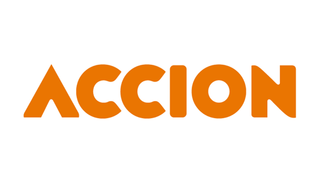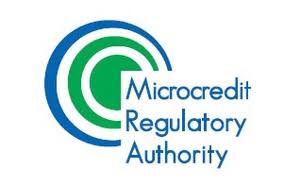
Microcredit is the extension of very small loans (microloans) to impoverished borrowers who typically lack collateral, steady employment, and a verifiable credit history. It is designed to support entrepreneurship and alleviate poverty. Many recipients are illiterate, and therefore unable to complete paperwork required to get conventional loans. As of 2009 an estimated 74 million people held microloans that totaled US$38 billion. Grameen Bank reports that repayment success rates are between 95 and 98 percent. The first economist who had invented the idea of micro loans was Jonathan Swift in the 1720’s. Microcredit is part of microfinance, which provides a wider range of financial services, especially savings accounts, to the poor. Modern microcredit is generally considered to have originated with the Grameen Bank founded in Bangladesh in 1983. Many traditional banks subsequently introduced microcredit despite initial misgivings. The United Nations declared 2005 the International Year of Microcredit. As of 2012, microcredit is widely used in developing countries and is presented as having "enormous potential as a tool for poverty alleviation." Microcredit is a tool that can possibly be helpful to reduce feminization of poverty in developing countries.

Microfinance is a of financial services targeting individuals and small businesses who lack access to conventional banking and related services. Microfinance includes microcredit, the provision of small loans to poor clients; savings and checking accounts; microinsurance; and payment systems, among other services. Microfinance services are designed to reach excluded customers, usually poorer population segments, possibly socially marginalized, or geographically more isolated, and to help them become self-sufficient. ID Ghana is an example of a microfinance institution.

Mercy Corps is a global non-governmental, humanitarian aid organization operating in transitional contexts that have undergone, or have been undergoing, various forms of economic, environmental, social and political instabilities. The organization claims to have assisted more than 220 million people survive humanitarian conflicts, seek improvements in livelihoods, and deliver durable development to their communities.

Grameen Bank is a microfinance specialized community development bank founded in Bangladesh. It makes small loans to the impoverished without requiring collateral.

Accion is an international nonprofit. Founded as a community development initiative serving the poor in Venezuela, it works with local partners in different countries to develop and scale digital financial solutions for underserved people globally.
The United Nations Volunteers (UNV) programme is a United Nations organization that contributes to peace and development through volunteerism worldwide.
Opportunity International is a 501(c)(3) nonprofit organization chartered in the United States. Through a network of 47 program and support partners, Opportunity International provides small business loans, savings, insurance and training to more than 14 million people in the developing world. It has clients in more than 20 countries and works with fundraising partners in the United States, Australia, Canada, Germany, Switzerland, Singapore, Hong Kong and the United Kingdom. Opportunity International has 501(c)(3) status as a tax-exempt charitable organization in the United States under the US Internal Revenue Code.

Cooperative banking is retail and commercial banking organized on a cooperative basis. Cooperative banking institutions take deposits and lend money in most parts of the world.
Aga Khan Agency for Microfinance (AKAM) is a microfinancing agency of the Aga Khan Development Network.

Solidarity lending is a lending practice where small groups borrow collectively and group members encourage one another to repay. It is an important building block of microfinance.

The Grameen family of organizations has grown beyond Grameen Bank into a multi-faceted group of both commercial and non-profit ventures. It was first established by Muhammad Yunus, the Nobel Peace Prize-winning founder of Grameen Bank. Most of the organizations in the Grameen group have central offices at the Grameen Bank Complex in Mirpur, Dhaka, Bangladesh. The Grameen Bank started to diversify in the late 1980s when it began attending to unutilized or underutilized fishing ponds, as well as irrigation pumps like deep tubewells. In 1989, these diversified interests started growing into separate organizations, as the fisheries project became Grameen Fisheries Foundation and the irrigation project became Grameen Krishi Foundation.
Financial inclusion is the availability and equality of opportunities to access financial services. It refers to a process by which individuals and businesses can access appropriate, affordable, and timely financial products and services which include banking, loan, equity, and insurance products. It is a path to enhance inclusiveness in economic growth by enabling the unbanked population to access the means for savings, investment, and insurance towards improving household income and reducing income inequality

Microcredit Regulatory Authority (MRA) is the central body to monitor and supervise microfinance operations of non-governmental organizations of the Republic of Bangladesh. It was created by the Government of People's Republic of Bangladesh under the Microcredit Regulatory Authority Act. License from the Authority is mandatory to operate microfinance operation in Bangladesh as an NGO.
Innovations for Poverty Action (IPA) is an American non-profit research and policy organization founded in 2002 by economist Dean Karlan. Since its foundation, IPA has worked with over 400 leading academics to conduct over 900 evaluations in 52 countries. The organization also manages the Poverty Probability Index.

Microcredit for water supply and sanitation is the application of microcredit to provide loans to small enterprises and households in order to increase access to an improved water source and sanitation in developing countries. While most investments in water supply and sanitation infrastructure are financed by the public sector, investment levels have been insufficient to achieve universal access. Commercial credit to public utilities was limited by low tariffs and insufficient cost-recovery. Microcredits are a complementary or alternative approach to allow the poor to gain access to water supply and sanitation.
The SEEP Network, also known as SEEP, is a member-based, nonprofit organization with headquarters in Arlington, Virginia.
Gregory F. Casagrande is an American businessman and the founder of South Pacific Business Development Microfinance Network, the leading microfinance institution in the Pacific Islands region. He is also the founder of MicroDreams, a microfinance acceleration fund working with emerging microfinance institutions in Latin America, Africa and the Pacific and Transformative Ventures LLC, a Microfinance advisory company.
Gender and development is an interdisciplinary field of research and applied study that implements a feminist approach to understanding and addressing the disparate impact that economic development and globalization have on people based upon their location, gender, class background, and other socio-political identities. A strictly economic approach to development views a country's development in quantitative terms such as job creation, inflation control, and high employment – all of which aim to improve the ‘economic wellbeing’ of a country and the subsequent quality of life for its people. In terms of economic development, quality of life is defined as access to necessary rights and resources including but not limited to quality education, medical facilities, affordable housing, clean environments, and low crime rate. Gender and development considers many of these same factors; however, gender and development emphasizes efforts towards understanding how multifaceted these issues are in the entangled context of culture, government, and globalization. Accounting for this need, gender and development implements ethnographic research, research that studies a specific culture or group of people by physically immersing the researcher into the environment and daily routine of those being studied, in order to comprehensively understand how development policy and practices affect the everyday life of targeted groups or areas.
The Global Policy Forum (GPF) is organized by the Alliance for Financial Inclusion, or AFI, as the keystone event for its membership and financial inclusion policymakers worldwide. Each year, it is co-hosted by a different member institution in a different region of the world. As of November 2023, AFI had 86 member institutions from over 80 countries, making the AFI GPF the most important and comprehensive forum for regulatory institutions with an interest in promoting financial inclusion policy. The AFI GPF is focused on developing and improving national financial inclusion strategies and policies and is used as a platform for senior financial regulators to exchange ideas as well as engage in peer-to-peer learning activities.

Kashf Foundation is a non-profit organization, founded by Roshaneh Zafar in 1996. Kashf is regarded as the first microfinance institution (MFI) of Pakistan that uses village banking methodology in microcredit to alleviate poverty by providing affordable financial and non-financial services to low income households - particularly for women, to build their capacity and enhance their economic role. With headquarters in Lahore, Punjab, Kashf have regional offices in five major cities and over 200 branches across Pakistan.











